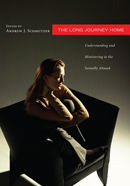A Charge for Church Leadership: Speaking Out Against Sexual Abuse and Ministering to Survivors, Part 1
Christian churches and their leaders across this nation and indeed worldwide must provide resources for victims of sexual abuse. Those who have acted abusively must be called to account and the needed help must be found for them. Cooperation and collaboration with community-based resources, such as shelters, therapists, police, and legal aid must be encouraged. Churches, and those who lead them, must encourage all of us to condemn abuse, including sexual abuse, and seek our place as part of a broader collaborative community response. Without such initiatives, the pain often goes unrecognized and grows more severe, and the potential for healing is sacrificed to a *conspiracy of silence. When we feed, clothe, and weep with those who are suffering, we serve our communities like our mission statements promise. Our voices—both prophetic and priestly—apply God’s healing power to those who have been impacted by shameful acts of sexual aggression.
Some Intentional Pastoral Steps
Pastoral care can shatter the silence on this issue through intentional words and actions. Here are some steps every pastor can take:12
1. Every pastor and every congregation acknowledge that sexual abuse is a serious problem in society and affirm in the strongest terms possible that there is no biblical justification for it inside or outside families of faith;
2. Every pastor and every congregation affirm its intention to shatter the silence on sexual abuse by intentional words and actions concerning abuse and offering support—emotional, practical, and spiritual—to victims, abusers, and their families, especially those who seek out pastors and church leadership for support in the aftermath of crisis;
3. Every pastor undertake training opportunities to prepare themselves for offering help to those who suffer abuse in its many and varied forms. These may include print resources, attending training sessions, or visiting proven websites;13
4. Every pastor foster and support community-based policies, programs, and services that protect victims and hold offenders accountable;
5. Every pastor should consider how to make information available about sexual abuse to congregants in a way that is accessible but appropriately confidential (such as brochures in the church washroom, material on the church website that can be downloaded and printed at home, books in the church library, etc.);
6. Every congregation, with help from its administrative leadership, develop a protocol for dealing with pastors and other church leaders accused of abusing their own family members or other individuals with whom they are in relationship.
Even small steps toward the goal of speaking out and responding compassionately and with best practices to those who have been impacted by sexual abuse is very powerful. May we challenge each pastor to think creatively and to respond with courage.
PR
Coming up in the Spring 2014 issue: Part 2 of “A Charge for Church Leadership” continues with A Pastoral Perspective: Pastor-to-Pastor.

Notes
1. Based on an experience of Nancy Nason-Clark several years ago in Calgary, Alberta.
2. For elaboration, see Nason-Clark, “When Terror Strikes at Home,” 303–310; idem, “Christianity and Domestic Violence,” 161–66.
3. Kroeger and Nason-Clark, No Place for Abuse.
4. See Nason-Clark et al., “The RAVE Project,” available online at www.uwindsor.ca/units.socialwork/critical.nsf/.
5. Nason-Clark, The Battered Wife. Chapter 4, in particular, highlights some of the data surrounding clergy experience in responding to the needs of victims and *perpetrators of abuse. A total of 41.4 percent of religious leaders in a study of *evangelical clergy reported that they were called upon at least twice a year by “a woman who was abused in childhood by a parent,” and 20.9 percent were called upon at least twice a year by a man in similar circumstances.
Category: Ministry, Pneuma Review, Winter 2014


